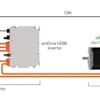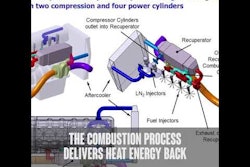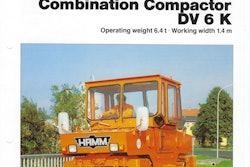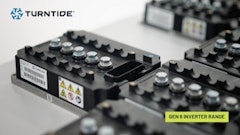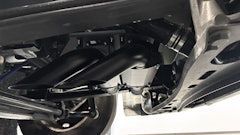Westport Fuel Systems Inc. supports the upcoming Plenary vote in the European Parliament to pass Europe’s first CO2 regulations which set CO2 emission reduction targets for heavy-duty vehicles. On February 27, 2019, the Committee for Environment, Public Health and Food Safety (ENVI) voted to approve the final text of the legislation previously approved by the Committee of Deputy Permanent Representatives on February 22, 2019. This has now set the stage for final approval by the European Parliament currently scheduled for the week of April 15, 2019.
Under the proposed legislation, heavy-duty truck original equipment manufacturers (OEM) will be required to achieve a fleet average reduction of CO2 emissions of 15% by 2025 and 30% by 2030 compared to a 2019 baseline emission level.
“Heavy-duty natural gas vehicles featuring WestportHPDI 2.0 technology provide a CO2 emission reduction benefit of approximately 20% compared to an equivalent diesel-fueled vehicle and are commercially available, cost competitive, and on the road in Europe today,” states David Johnson, Chief Executive Officer of Westport Fuel Systems. “The Westport HPDI 2.0 system meets the expected 2025 target today and with blends of renewable natural gas, may enable CO2 emission reductions in excess of the 30% target that is expected to come into effect in 2030.”
In addition, the proposed Regulation calls on the Commission to submit a report in 2022 outlining a potential methodology to provide a credit for the contribution of additional CO2 emission reductions through the use of synthetic and advanced alternative liquid and gaseous fuels, including renewable natural gas. Furthermore, the Commission has been tasked with the development of a methodology to assess and report on the full life-cycle CO2 emissions of heavy-duty vehicles taking into account the CO2 impact of materials extraction and disposal and the manufacturing process.
“These Regulations send a strong signal in support of the continued development and accelerated deployment of alternative fuel technologies together with supporting refuelling infrastructure. Future considerations to account for the emission reduction benefits of renewable natural gas and a full life-cycle accounting for heavy-duty vehicles sets the industry on a path to delivering a significant contribution to broader decarbonization goals,” says Johnson. “It is important that the CO2 reduction potential of using renewable fuels are fully recognized. We look forward to the European Commission’s assessment of how to best account for these benefits.”
Read further information on the new European Union CO2 reduction regulations.
